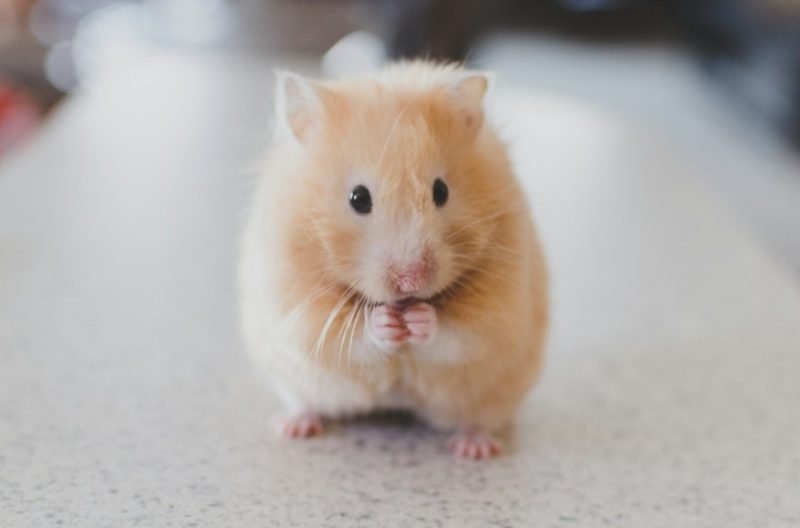Rats are fascinating creatures that are often kept as pets, used in scientific research, and are also common pests in urban areas. If you’re considering adopting a pet rat or if you’re just curious about the lifespan of rats in different environments, you may be wondering, How long do rats live?
In this comprehensive guide, we will delve into the lifespan of rats, the factors that influence their longevity, and what you can do to ensure they live a long and healthy life.
Introduction: Understanding Rat Lifespan

When it comes to understanding the lifespan of rats, it’s important to recognize that their age can vary depending on several factors, including whether they are kept as pets, live in the wild, or are used for scientific research. In general, the lifespan of a rat ranges from 2 to 3 years, but this can differ greatly based on their living conditions, diet, genetics, and other health-related factors. By the end of this article, you’ll have a clear understanding of how long rats typically live and what you can do to maximize their lifespan.
How Long Do Rats Live in the Wild?
Rats that live in the wild typically have a much shorter lifespan than their domesticated counterparts. Wild rats face numerous challenges, including predation, disease, food scarcity, and harsh environmental conditions. These factors all contribute to their relatively short lives.
Average Lifespan of Wild Rats
In the wild, rats generally live between 1 to 2 years. This short lifespan is due to the many dangers they face, such as predators (hawks, snakes, cats, and larger mammals), harsh weather, and the constant threat of disease. Additionally, food availability can be inconsistent, which further limits their ability to survive long-term.
Challenges Wild Rats Face
Wild rats are constantly on the lookout for food and shelter, and they often have to be wary of predators. Their exposure to diseases such as leptospirosis and parasites like fleas and ticks also contributes to their reduced lifespan. The absence of regular veterinary care and optimal nutrition makes it difficult for wild rats to thrive.
How Long Do Pet Rats Live?
Pet rats, on the other hand, enjoy a significantly longer lifespan compared to their wild counterparts. With proper care, diet, and attention, pet rats can live up to 3 years, and in some cases, even longer.
Average Lifespan of Pet Rats
The average lifespan of a pet rat is about 2 to 3 years. Some pet rats have been known to live slightly longer, especially if they are well-cared for and kept in a safe, clean environment. Pet rats typically live longer because they are protected from predators and receive regular food, shelter, and healthcare.
Factors That Influence the Lifespan of Pet Rats
Several factors can influence how long a pet rat will live:
- Genetics: Just like humans, rats inherit certain genes that can affect their overall health and lifespan. Some breeds of rats may have a predisposition to certain health conditions that can shorten their life expectancy.
- Diet: A well-balanced diet rich in essential nutrients is crucial for the health of a pet rat. Rats should be fed high-quality rat food, along with fresh vegetables and occasional treats. A poor diet can lead to obesity, which can decrease their lifespan.
- Living Environment: Keeping your pet rat in a clean, safe, and stimulating environment will enhance their overall well-being. Rats that are kept in small, dirty cages with little mental or physical stimulation may experience stress, which can shorten their lifespan.
- Healthcare: Regular visits to a veterinarian who specializes in small animals can help prevent or treat health issues. Early detection of diseases such as respiratory infections, tumors, or dental problems can improve the rat’s quality of life and potentially extend their lifespan.
How Long Do Rats Live in Captivity vs. Wild?
The lifespan of rats in captivity, including pet rats, is significantly longer than their wild counterparts. This difference can be attributed to the lack of predators, the availability of consistent food, and the presence of regular veterinary care in captivity. In contrast, wild rats face numerous survival challenges that can drastically shorten their lives.
Rats in Captivity: A Longer Lifespan
In captivity, rats can live from 2 to 3 years or even a little longer, depending on their care. By controlling factors such as their environment and diet, owners can greatly improve the chances of their pet rat living a long and healthy life. Regular veterinary check-ups and a safe, enriched living space also contribute to their longer lifespan.
Rats in the Wild: Survival is Key
In the wild, the average lifespan of a rat is typically much shorter due to constant threats. Wild rats are constantly exposed to predators and environmental hazards. The lack of food security and healthcare also contributes to their higher mortality rate.
What Are the Oldest Rats on Record?
Although the average lifespan of a pet rat is 2 to 3 years, some rats have lived far beyond this typical range. The oldest rats on record have lived up to 5 years, with some exceptional cases reaching even further. However, such longevity is rare and often attributed to ideal care, genetics, and luck.
Common Health Issues That Affect Rat Lifespan
Like any pet, rats are susceptible to a variety of health conditions that can impact their lifespan. Some of the most common health issues that may affect a rat’s longevity include:
Respiratory Infections
Rats are prone to respiratory infections, especially if they are exposed to poor air quality or stressful conditions. Respiratory issues are one of the leading causes of death in rats, so it is crucial to monitor their breathing and take them to the vet at the first sign of illness.
Tumors
As rats age, they become more susceptible to developing tumors, particularly mammary tumors in female rats. Tumors can significantly affect a rat’s health and lifespan, so regular check-ups are necessary to catch any growths early.
Dental Issues
Rats’ teeth grow continuously, and if they are not properly worn down, they can become overgrown and cause painful health issues. Dental problems can lead to malnutrition and other complications that can shorten a rat’s lifespan.
Obesity
Obesity is a common problem in pet rats, especially if they are overfed or not given enough physical activity. Obese rats are at higher risk for developing diabetes, heart disease, and joint problems, all of which can shorten their lives.
How to Maximize Your Rat’s Lifespan
To ensure that your pet rat lives a long, healthy life, there are several key practices you should follow:
Provide a Balanced Diet
A well-balanced diet is essential for the health of your rat. Make sure they are eating high-quality rat pellets and supplementing their diet with fresh fruits, vegetables, and protein-rich treats. Avoid feeding them sugary or fatty foods, as these can lead to obesity and other health problems.
Regular Veterinary Check-Ups
Taking your rat to the vet regularly for check-ups is crucial. Early detection of health issues such as respiratory infections or tumors can help prevent more serious problems down the road. Make sure to find a vet who is experienced in treating small animals.
Provide Mental and Physical Stimulation
Rats are intelligent animals and need plenty of mental and physical stimulation to stay healthy. Make sure they have toys, tunnels, and activities to keep them entertained. A lack of stimulation can lead to stress and depression, which can affect their lifespan.
Clean and Safe Environment
Keep your rat’s cage clean and spacious. A dirty or overcrowded cage can lead to health issues and stress. Make sure they have access to clean bedding, fresh water, and a quiet, comfortable place to sleep.
Conclusion: How Long Do Rats Live?
In conclusion, the lifespan of rats can vary significantly based on their living environment. Wild rats typically live only 1 to 2 years due to the dangers they face, while pet rats can live 2 to 3 years or longer with proper care. By providing your pet rat with a balanced diet, a stimulating environment, regular veterinary care, and a clean living space, you can help ensure that they live a long, healthy life. Whether you’re keeping a rat as a pet or observing them in the wild, understanding their lifespan is key to providing the best possible care.






